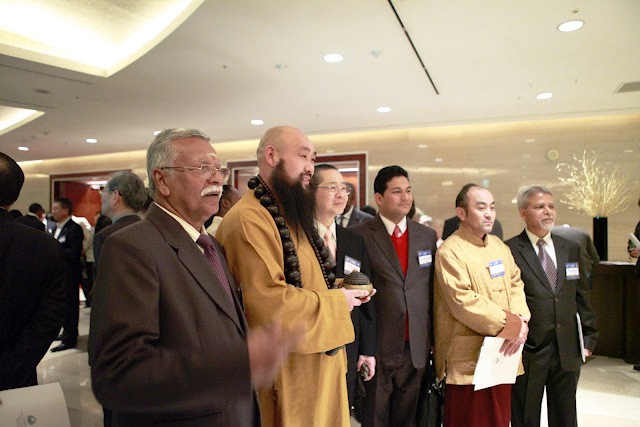![]()
The Words of the Miyatsuka Family
|
|
The Words of the Miyatsuka Family |

Japan's closest neighbors in geography and history are located on the Korean Peninsula: the Republic of Korea (South Korea) and the People's Democratic Republic of Korea (North Korea).
With South Korea, Japan normalized diplomatic relations in 1965 with the signing of a peace treaty. Now the people of both nations enjoy visiting each other, with more than 5 million people crossing the channel per year, making South Koreans the No. 1 visitors to Japan. With North Korea, on the other hand, Japan has not concluded a peace treaty and relations are not yet normalized. While Japan has established normal relations with most of the United Nations member states, it does not have a peace treaty with Russia in spite of relations being normalized, owing to the unsolved territorial dispute over the four northern islands.
Nonetheless, Japan and North Korea have had some human and material traffic. In the past, all Japanese passports had the following statement: "This passport is valid for all countries and areas except North Korea (Democratic People's Republic of Korea)," explicitly excluding North Korea from destinations of Japanese travelers. Although this reference was deleted in 1991, there are very few Japanese tourists or businessmen going to North Korea under the current negative political and diplomatic circumstances.
Beginning in January 1991, Japan and North Korea started serious talks about normalizing relations, which were suspended with few achievements after the eighth meeting in November 1992. Following the Pyongyang visit by former Prime Minister Tomiichi Murayama in December 1999, the talks resumed but ended again after the fourth meeting.
In September 2002, then Prime Minister Junichiro Koizumi paid a shocking trip to North Korea, holding the first-ever summit with late General Secretary Kim Jong-il. Both leaders even signed a "Pyongyang Declaration." During the summit, the North Korean leader publicly acknowledged that abduction cases of Japanese citizens had been carried out by North Korea's "ambitious elements," opening the way for five Japanese victims to return home. However, regarding the fates of other Japanese abduction victims, Pyongyang explained that "eight people died and one is missing." Japan could not accept this response, and those who had hoped for the victims' safe return seethed in frustration and publicly expressed their anger. Since then, normalization talks have been virtually aborted.
As for material traffic, mutual trade began in the mid-1950s, although without official diplomatic recognition. Surrounded by sea in four directions, Japan has many harbors across the country, but only 68 ports are allowed to accommodate foreign commercial ships. At the peak number of vessels, in 2002, 144 North Korean commercial ships entered 44 ports. (The well-known Mangyong Bong 92, a passenger ship, is not included in this statistic.) The volume of trade peaked in 2003, with Japanese exports of 10.6 billion yen and Japanese imports of 20.1 billion yen, according to Finance Ministry statistics.
However, following North Korea's nuclear test and missile launches, including the Taepodong II missile on October 9, 2006, the Japanese government issued a stern protest and accusation against Pyongyang. It subsequently implemented some of the sanctions endorsed by the UN Security Council, such as a ban on weapons trade, freezing of monetary transactions, prohibition of human traffic, and curtailment of education and training.
In addition to these measures, Japan has banned all North Korean ships from entering Japanese ports, banned all trade with North Korea, and refused entry into Japan by any North Korean citizen. Consequently, the trade volume has been dramatically reduced since 2007; after Pyongyang's second nuclear test on May 25, 2009 mutual trade completely stopped, including exports carried on third-country vessels. In addition, North Korea owes Japan an accumulated trade debt exceeding 100 billion yen as well as payment for rice supplies. Accordingly, now there is hardly a material traffic and very limited human contact between the two countries.
I visited North Korea twice 21 years ago. Since then, I have been unable to obtain a visa. Instead, I have observed North Korea from the Chinese side of the Yalu River and Tumen River, two rivers constituting the mutual boundary. I have visited the Chinese banks of the rivers about 40 times since 1992, interviewing people escaping North Korea, people buying goods from souvenir shops, and smugglers in order to analyze their lives.
Finally, let me share one grave concern regarding North Korea. On the outskirts of Mosan, a city on the upper Tumen River, there is the Mosan Iron Mine with world-level ore deposit (estimated 1.7 billion tons). A large sign posted there has a slogan written in white letters: "Mosan Mine is our national treasure!" This mine that is so precious to North Korea, however, contains mostly low-grade magnetic iron ore. The Mitsubishi Mining Group, during the Japanese occupation, virtually gave up developing this mine because of its low-quality ore.
In order to improve the ore quality, a water-washing refining method is applied, causing black waste water to flow into the Tumen River, which becomes dark downstream from this region. Also when the mud piles up and dries out, particles are blown by the wind, causing new pollution. The water washing refining needs to be replaced with a magnetic refining method, which requires electrical power and technology. To improve the grave situation, North Korea has to obtain electricity from China's power station across the river, and Japan has the technology it needs.
North Korea exports most of the mined iron ore to China in exchange for foreign currency. In turn, this process further deteriorates the land and the Tumen River. The pollution of the river should stop. A song back in 1931 by Jongu Kim began with the lyrics: "What a clean stream is the Tumen River!" We should restore this clean stream. North Korea now sustains its national finances by desperate exports. I would like to urge the neighboring countries to support North Korea so that it does not become a ruined country.